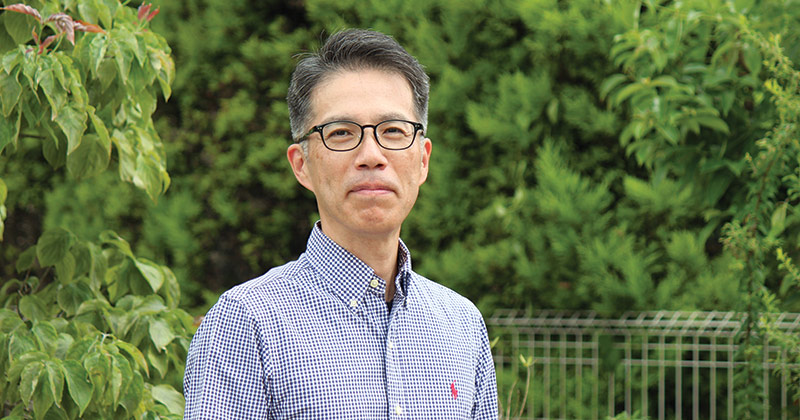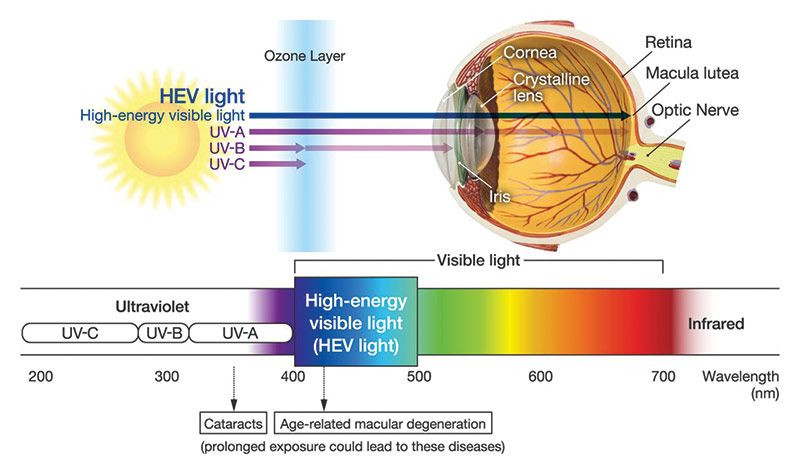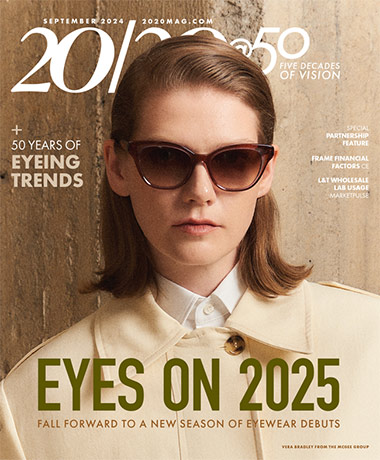By Deborah Kotob

I recently had the honor of meeting Dr. Bunkichi Tsunekawa, General Manager for the Vision Care Materials Division at Mitsui Chemicals. Dr. Tsunekawa shared the company’s vision for the Vision Care Materials Division, particularly the ophthalmic lens materials market.
Deborah Kotob: Dr. Tsunekawa, you have been with Mitsui Chemicals for over 28 years and recently took on a new role as General Manager for the Vision Care Materials Division at Mitsui Chemicals. Can you share a bit about your background as a scientist and engineer?
Dr. Tsunekawa: I hold a diverse academic background in the scientific and engineering fields. I completed my bachelor’s degree in chemical engineering, a master’s degree in international health and a doctorate in agricultural and life sciences. This has enabled me to gain experience in various businesses at Mitsui Chemicals. I have worked in different divisions, such as Fine Chemicals, Agrochemicals and Corporate Planning. I am currently overseeing the Vision Care Materials business, which is extremely exciting because it contributes to improving human health and quality of life.
Mitsui Chemicals has been a leading pioneer in the vision care materials sector of the optical industry worldwide with innovations such as
the MR™ materials. Can you tell our readers what is MR™?
MR™ is the first eyeglass lens material made of thiourethane resin. Developed by Mitsui Chemicals in 1987, MR™ is a breakthrough material for high-refractive index lenses. Its discovery has paved the way for all the advanced high-index lenses we have today. We are one of the leading companies providing high-index lens materials in the United States.

What innovative MR™ lens materials would you like the reader to learn about?
The MR™ lens materials improve high-index eyeglass lenses’ weight, strength and clarity. Made from thiourethane resin, MR™ offers a high refractive index, a high Abbe number, a low specific gravity and good tintability, the most critical optical properties in eyeglass lenses. Moreover, MR™ offers lens materials with various refractive indexes, including 1.60, 1.67 and 1.74. This enables the dispenser to offer eyeglass wearers a lens that fits their needs and preferences regarding optical power and intended purpose. That’s why eyeglass manufacturers worldwide have eagerly adopted MR™. Over the last few years, major retailers in the U.S., including Costco and Zenni, have offered MR™ as their standard 1.60 or higher refractive index lenses. Making MR™ material their go-to lens material delivers a higher quality product to their consumers. The adoption of MR™ in the U.S. market is rising as retailers who prioritize quality learn about the exceptional quality and unique properties of MR™ hi-index materials.

What other innovations is Mitsui Chemicals pioneering in ophthalmic lens materials?
Mitsiu Chemicals’ UV+420cut™ is a lens technology that filters harmful light transmitting through the lens and reaching the eye. UV+420cut™ blocks UV rays, the most harmful rays of light reaching the eye, and it reduces a specific range of light in the high-energy visible light (HEV light) spectrum from 400 to 420 nm. Research indicates that excess exposure to UV and HEV light from the sun may be linked to eye conditions such as age-related macular degeneration (AMD). At Mitsui Chemicals, we team up with experts in the U.S., like Jobson, to offer continuing education to opticians. A current CE course sponsored by Mitsui Chemicals is “Let’s Be Clear About Blue,” written to raise awareness about UV+420cut™ lens technology. Many lens casters and manufacturers are currently using UV+420cut™ as their in-mass solution.
What can you tell us about Mitsui Chemicals embracing green science in lens material such as Do Green™, the world’s first plant-derived high-refractive index lens monomer materials MR-174™?
At Mitsui Chemicals, we are committed to sustainability and making a positive impact on the environment. We strongly believe that being environmentally conscious begins at the top of the supply chain by considering the raw materials. Our Do Green™ eyeglass lens materials are made from plant-derived raw materials. Do Green™ eyeglass lens materials boast a high-refractive index and a more sustainable option. Our Do Green™ products retain all the optical properties of our original MR™ lenses, including thinness, lightness and resistance to breakage, while also being certified as biomass products by JORA (Japan Organics Recycling Association) and USDA (United States Department of Agriculture). We are dedicated to meeting the diverse needs of our customers and contributing to a more sustainable society that is in harmony with the environment.
Thank you for your time, Dr. Tsunekawa. On behalf of all of us at 20/20 Magazine, I want to thank Mitsui Chemicals for their commitment to the education of opticians. Lens materials, particularly lens monomers, are better understood by opticians in the U.S. thanks to the many free ABO CE courses sponsored by Mitsui Chemicals at 2020mag.com/ce.
Visit MR™ - High Index Lens Material’s LinkedIn page for more educational resources.












